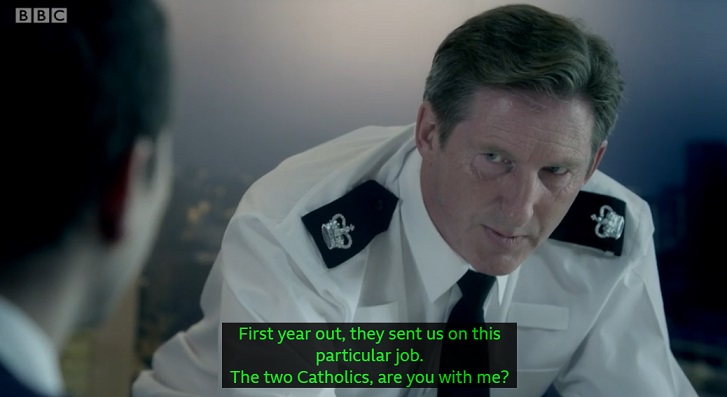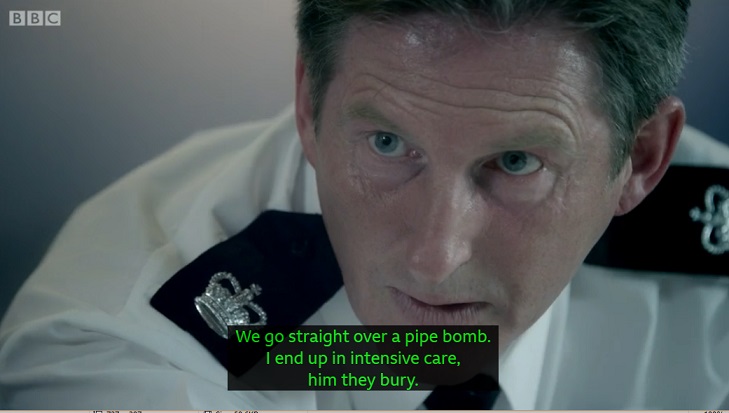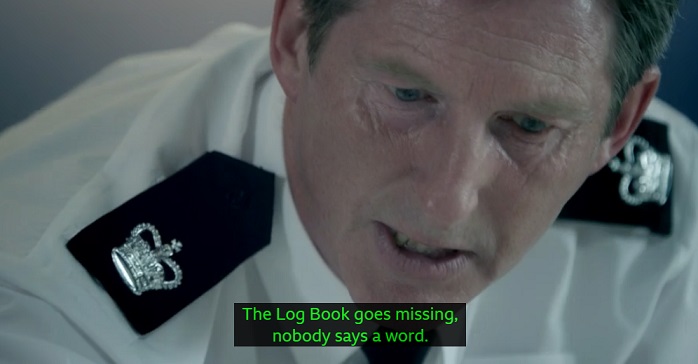The Battle of Hastings
- ToT

- May 1, 2019
- 3 min read
Updated: May 2, 2019

Ever since Jackie Laverty's throat was ventilated and her body dumped in a chest freezer alongside long-forgotten potato waffles, Line of Duty has exhibited a callous disregard for its cast. Ask those potato waffles - they're still waiting for a credit.
Gina McKee, a kitemark of quality, was cut before the first series ended its shift. Gina McKee. That's not how you treat WAIT NOW LENNIE JAMES? When Jed Mercurio demonstrated he was prepared to scratch premier talent to wrongfoot audiences and sustain jeopardy, we should seen what was coming. But, like one of Lionel Messi's markers, we didn't.
Jessica Raine's defenestration caused so many jaws to droop, Mary Poppins materialised in every house across Britain to remind us we are not codfish. Danny Mays barely made it past the opening credits. Jason Watkins left in bits. Thandie Newton for so long had the upper hand, until it was Watkinsed.
AC-12's investigations are a volatile environment where injustice has a head start - the number of beatings Steve Arnott has endured suggests he was born under a pallet of ladders in a ladder shop on Halloween. Ted Hastings, though, has remained the implacable and untouchable diesel-sucking centre of incorruptibility. The man who backs his team, who doggedly pursues his quarry, whose personal life may be more shredded than Tim Ifield, but never loses his focus. Which is why it's so right to unveil him as the mythical H.
Over four series Mercurio and Adrian Dunbar have gained leverage over us, our sympathies for this dedicated officer growing as he faces senior officers and politicians more concerned with saving face than demanding justice to be served. Pressure screwing down from above, pressure building beneath his feet as cases intensify. Home is no refuge, Hastings one afternoon away from taking apart the hotel's trouser press. He can't even go for a game of golf in case he hears the word 'caddy' and requires an urgent exit.
The downfall of The Caddy (Craig Parkinson) was one of the most thrilling payoffs in recent years. We'd known he was a wrong 'un since the end of the first series and spent two series waiting for him to be caught out in a cross-examination ambush, until he was sipping water like a University Challenge contestant who'd left the mascot on a train. The unmasking of H is the reverse - it's a dish of a mystery, a platter of Jed Herrings, which demands a similar magnitude of pay-off. If someone called Harry Harrison Harrelson Hopper, a mounted officer from Hove, clip-clops into episode six, then we'll be spitting out all that sucked diesel.
One of 24's great tricks was to tell the audience, for 24 weeks in a row, that Nina Myers (oh, spoilers) was the mole in CTU in the opening credits. For 24 weeks. And still it was a humdinger when she was exposed because it couldn't have been her. It was too obvious. We trusted her. Cast your hard-head drive back over this fifth series: the scenes where Hastings was using a laptop in his hotel room at the same time as Corbett was conversing remotely with the mastermind; Hastings carting his laptop off to have it wiped or rebooted with a circular saw; his interference in those online conversations with the OCG; the money that was 'just resting' in his hotel room; a link to the RUC which recalls a story Hastings told Arnott in the first series.
What we're fighting now is ourselves and that's what will make the exposure of Hastings so satisfying; we've believed him, we've trusted him, and we've fallen for him. We've earned this. We can handle it, even if he is shown to be a wee gobshite.
By the end of the fifth series there is a sole certainty; after Huntley, Hargreaves, and Hilton (and perhaps Hastings), Central Police will never hire another H.















Comments